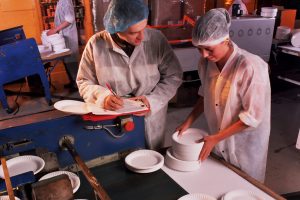North West excels in levels of ‘business creation areas’ new tool reveals

The North West excels in its share of ‘business creation areas’ new research has shown.
Business advisor, KPMG, and the University of Nottingham have created the Local Business Pulse Index (LBPI), which uses AI technologies to pinpoint what is influencing economic activity across England, Wales and Scotland by using seven groups to characterise potential growth.
The aim is for businesses and local government leaders to use the LBPI to prioritise what type of investment is needed and where it should go.
It reveals that nearly a third of local areas in the North West (31%) – surpassing the 19% average seen across England, Scotland and Wales – have been identified as Business Creation Areas, or places which share an anticipated high rate of new business and investment growth.
The seven groups have been derived from the geographic, sub-national data covering businesses, employees, and consumers. These groups include Business Creation, Sales Growth, High Investment, Employment Growth, Research and Development, Consumption Growth and High Productivity.
Out of the 39 areas across the North West, the LBPI reveals the following group breakdown:
- Barrow-in-Furness, Blackburn with Darwen, Bolton, Bury, Chorley, Knowsley, Rochdale, Rossendale, South Ribble and St Helens are areas in the High Investment group, with high expectations of growth in business investment, and firms facilitating flexible working with new digital infrastructure
- Allerdale, Blackpool, Burnley, Carlisle, Copeland, Halton, Hyndburn, Oldham, Pendle, Tameside, Wigan and Wirral are areas in the Business Creation group, with the highest start-up rates, combined with high expectations on investment growth
- Cheshire East, Liverpool, Preston, Salford, Sefton, Stockport, Trafford and Warrington are areas in the Sales Growth group, with strong sales forecasts, combined with strong expectations on employment growth as firms expand to meet demand
- Cheshire West and Chester is an area that is part of the Employment Growth group, which would show high expected growth in future hirings combined with strong performance in new job openings
- Eden, Fylde, Lancaster, Ribble Valley, South Lakeland, West Lancashire and Wyre are areas in the Consumption Growth group, with high household credit scores, supporting the local consumer and leisure-focused economy
- There weren’t any areas in the High Productivity group, which would show leading productivity hotspots and the highest rates of hybrid working
- Manchester is in the Research and Innovation group, with the strongest growth in venture capital investment and R&D expenditure
The live tool includes an interactive map of Scotland, England and Wales, with navigable local and regional business growth perspectives and detailed snapshots of individual areas.
The LBPI will be updated each quarter, presenting a current and forward-looking view across each locality. Users will also be able to see where local areas have moved from one group to another, reflecting changes in the local business cycle.
Warren Middleton, office senior partner at KPMG in the North West, said: “The LBPI gives an emerging view of the markers and characteristics of the new post-pandemic economy in the North West. It provides a complementary, and critically objective, analysis for local leadership, investors, and businesses alike.
“Giving real time insight like this can help focus investment and strategic decisions based on real time data. The data also shows us how local areas compare to others, if goals are being achieved, and importantly, where there may be gaps.”
He added: “The North West is witnessing a surge in start-ups and investment opportunities, positioning the region as a crucial player in the Business Creation group.
“Our strategic focus on fostering partnerships and attractive investment zones is helping the region reclaim its position as a growth epicentre. Notably, Manchester, one of our largest cities, shines in the Research and Innovation group, thanks to its thriving innovation hub supported by the city’s educational facilities that encourage early stage initiatives. Similarly, Liverpool is thriving in the Sales Growth group, with local businesses generating strong sales and revenues, resulting in high demand for new talent.”
Prof John Gathergood, at the University of Nottingham School of Economics, said the new resource will support businesses and governments to help make better decisions about localities across Great Britain.
Karl P Edge, head of KPMG Private Enterprise in the UK, said: “As the economy continues through a challenging period, there’s growing emphasis on local authorities to define their economic strategies and leverage profile of their business community.
“That’s why we’ve created the Local Business Pulse Index to help pinpoint the growth opportunities across England, Scotland and Wales. From the data, we can see there are distinct hubs for job creation, use of technology when working remotely, and investment.
“While we’ve experienced significant economic challenges over the past few years, it’s encouraging to see business creation levels come out on top in the North West, reassurance that growth and confidence are headed in the right direction for the region’s local areas.
“The need to understand local economies is crucial in prioritising investment and informing wider policy and with this tool, we can start to map out where our priorities should lie.”








